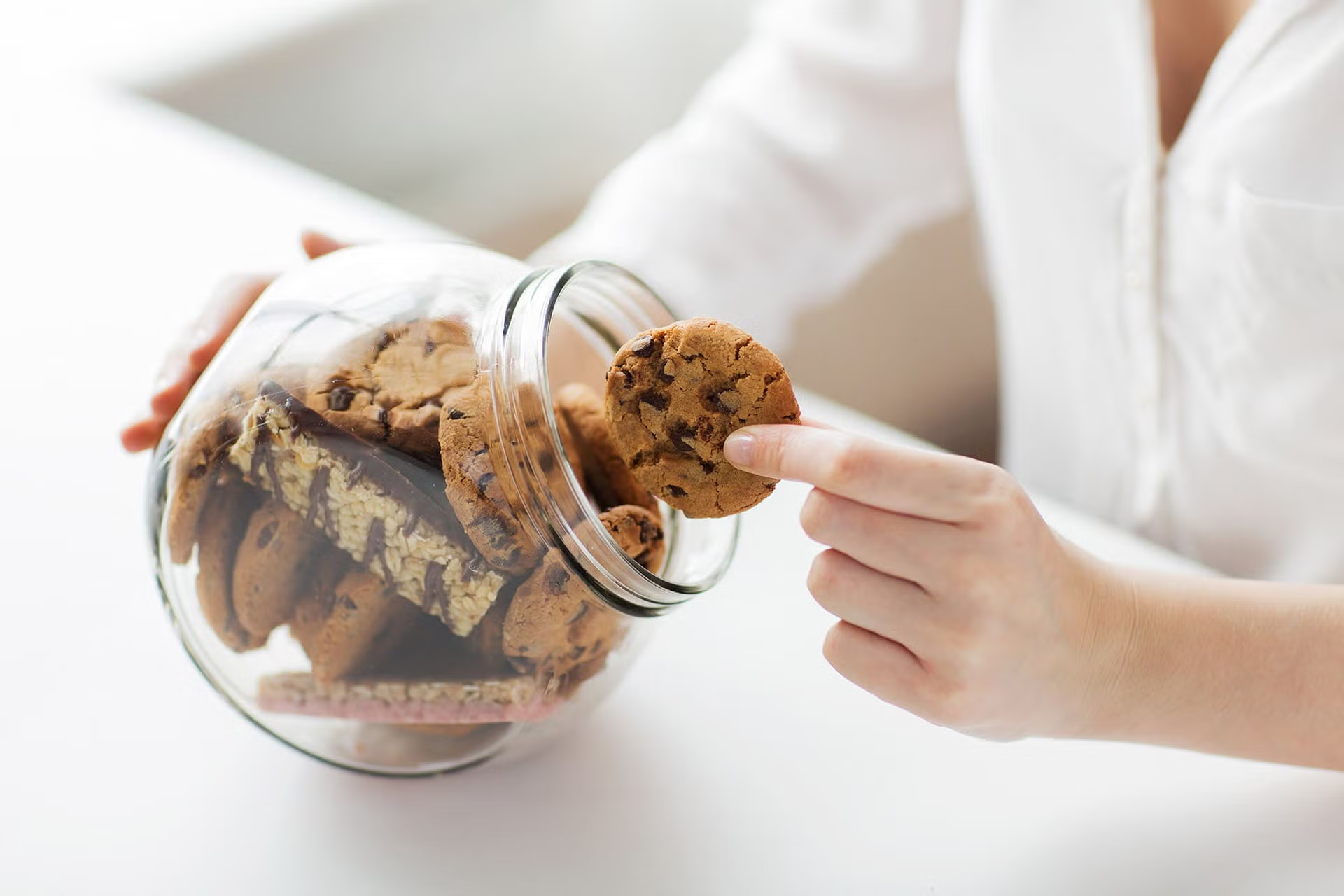The trick to keeping your cookies soft for as long as possible is to stop moisture escaping, and to do that you need to keep them sealed. Moisture evaporates when it comes into contact with air, so you need to restrict air circulation around your cookies as much as possible. Airtight containers or ziploc bags work best, but if you don’t want to part with your old cookie jar, just put a ziploc bag inside.
Our easy sealing method for soft cookies
- Let your cookies cool and then stack them, using sheets of parchment to separate them and keep them from sticking together.
- You can put your slice of apple or bread in with them, or, if you don’t have much room, swap the bread for slices of flour tortilla in between each cookie.
- Wrap your cookie stack in plastic wrap and place inside your bag or container, filling any empty space with bubble wrap to minimize airflow.
- Store in a cool, dry place, and most cookies should keep for up to a week. Any longer and you should transfer them to the fridge.
Gluten-free cookies have a shorter shelf-life, and should be refrigerated immediately.
Another important tip is to store different types of cookies separately. With so many tempting recipes from all over the world to choose from, you may have baked several different types of cookie. Be sure to store these in separate containers to stop stronger flavours like mint contaminating all your other cookies.
Follow Homemade Remedies
There are a few homemade remedies your grandmother might have used that work quite well to make your cookies softer, such as putting a slice of bread in with the cookies. The moisture from the bread should help keep the cookies soft, but do remember to replace it with another slice when it goes stale. Some people recommend using a slice of apple, which works in much the same way and doesn’t take up quite so much room.
Tips for making a chewier cookie
In the same way that reducing moisture loss will keep your cookies softer for longer, packing your recipe with moisture-retaining ingredients will produce a softer, chewier cookie to begin with. Try adapting your favourite cookie recipe with these tips for baking the ultimate soft cookies.
Avoid too much butter
As we know, too much butter leads to flat, thin cookies, so avoid greasing your baking tray and use parchment instead. You can also stop your cookie from spreading too thin by making the butter melt more slowly. You can achieve this by chilling your dough in the fridge for an hour or so, or by replacing the butter with shortening, which naturally melts more slowly. Do your research before making the switch, though, as some cookies, like shortbread, will only work with butter.
Choose brown sugar
There are other ingredients you can substitute, too. Brown sugar retains more moisture than white sugar, making it the natural choice for a chewier cookie. Some people also recommend swapping the whites of any eggs in your recipe for an extra yolk, as egg whites tend to dry out in the oven.
Keep cooking time to the minimum
Of course, the best way to stop ingredients drying out in the oven, or your cookie spreading too thin while it bakes, is to keep cooking time to a minimum. Try using the lower end of the recipe’s estimated baking time, or if you’re feeling brave, you can even take them out a minute or two early, with the middle still slightly raw. The cookie will be warm when you remove it from the oven, and should continue cooking until the middle firms up. For a consistent bake, use a light coloured tray. Dark colours absorb heat, meaning your cookie will bake more quickly on the bottom than the top.
Chocolate chip cookies
Finally, some types of cookie retain moisture better than others. If you needed another reason to bake chocolate chip cookies, the moisture from the chocolate helps to keep the cookie soft, so they are relatively long-lasting, if you can avoid the temptation of eating them all.









